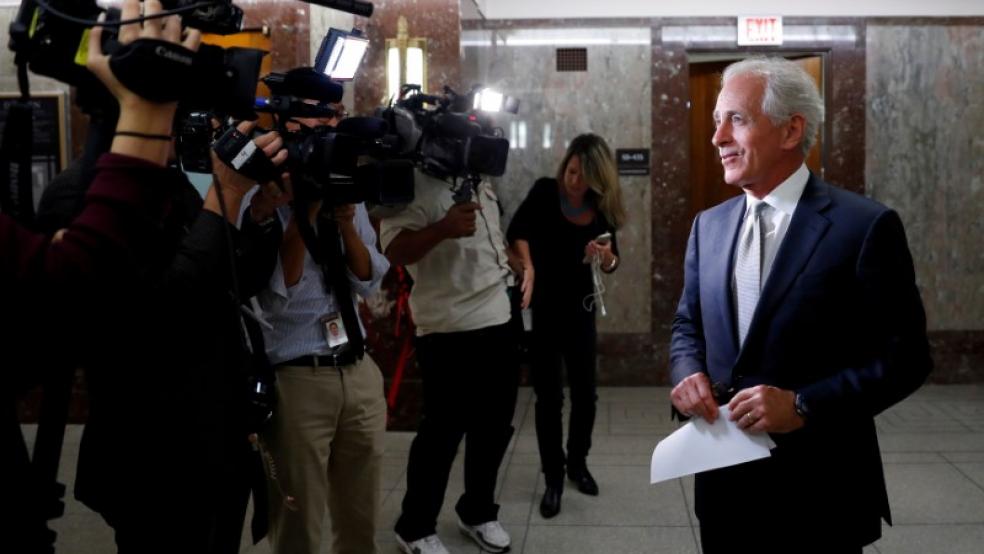Senate Tax Bill Hits a Late-Stage Snag Over Deficit Concerns
The Senate Republican tax plan looked increasingly like a sure thing Thursday. And then, suddenly, it didn’t.
A new analysis released late in the day by Congress’s Joint Committee on Taxation threw the GOP’s progress toward a vote on the bill into turmoil, finding that it would cost $1 trillion even after accounting for additional growth spurred by tax cuts.
The report, combined with a ruling by the Senate parliamentarian that a "revenue trigger" sought by deficit hawks failed to comply with budget rules, raised fresh doubts about whether Republicans could muster the 50 votes they need to pass their tax bill.
Republicans including Sen. Bob Corker of Tennessee, Jeff Flake of Arizona and James Lankford of Oklahoma had sought the inclusion of a trigger that would automatically raise taxes and generate about $350 billion in revenue if the projected economic benefits of the GOP tax cuts failed to materialize after five years.
Blocked from including that provision because of the parliamentarian’s ruling, Republican leaders delayed planned votes on the tax bill until Friday morning while they scramble for potential tax increases to offset the cost of their cuts.
Among the changes reportedly being considered to raise $350 billion in revenue and secure the votes of the deficit hawks are alternative minimum taxes for wealthy individuals and large corporations, according to The Hill. Another option would be to cut the corporate tax rate from 35 percent to 20 percent but then have that rate climb incrementally in later years, The Wall Street Journal reported. "Honestly, a lot of things are being discussed," said Sen. John Cornyn, the Senate’s second-ranking Republican, according to The Washington Post.
Senate Majority Leader Mitch McConnell said the Senate will reconvene at 11 a.m. Friday to start considering amendments before a final vote on the bill later in the day.





